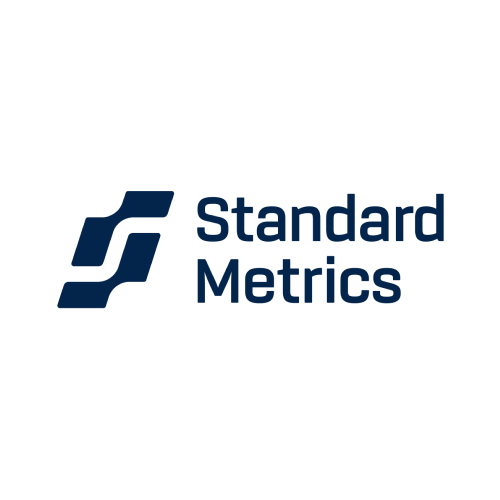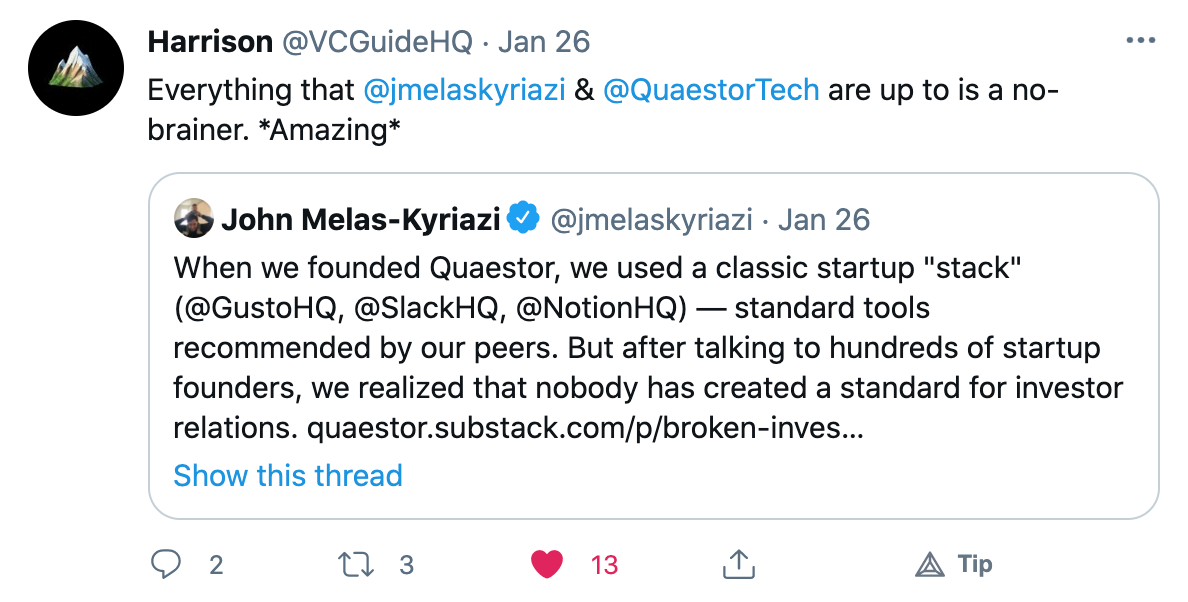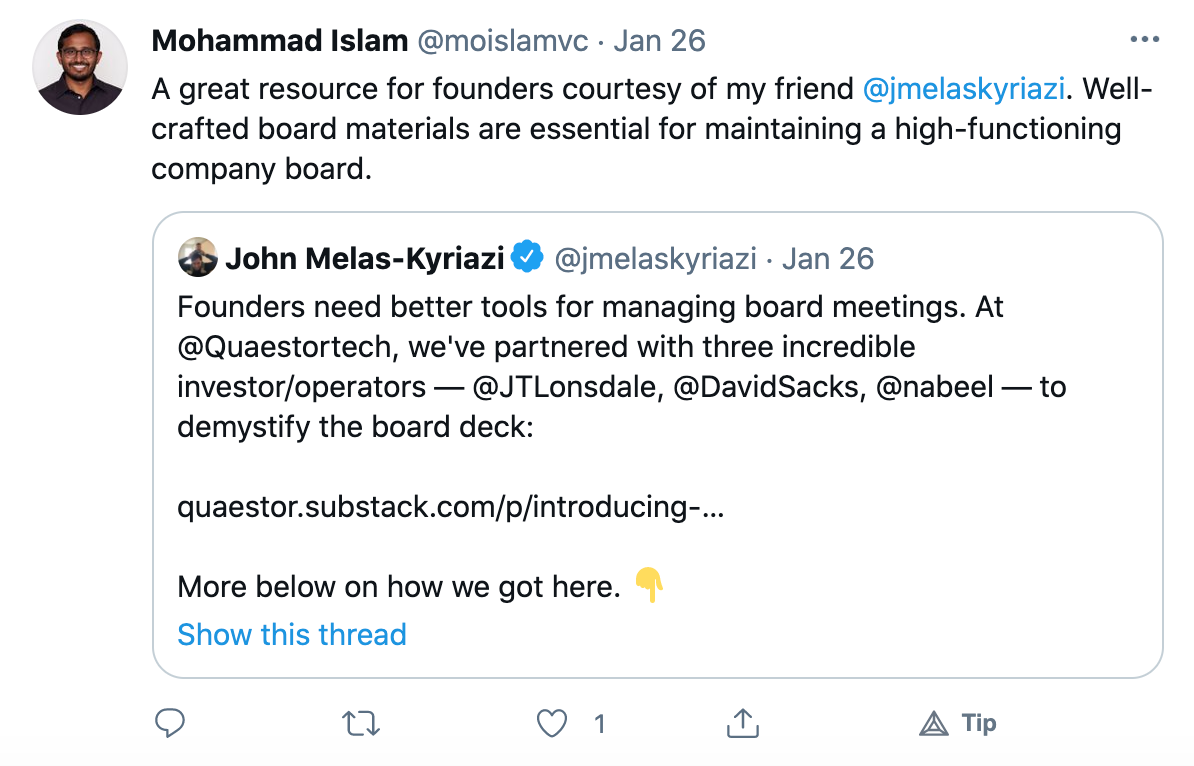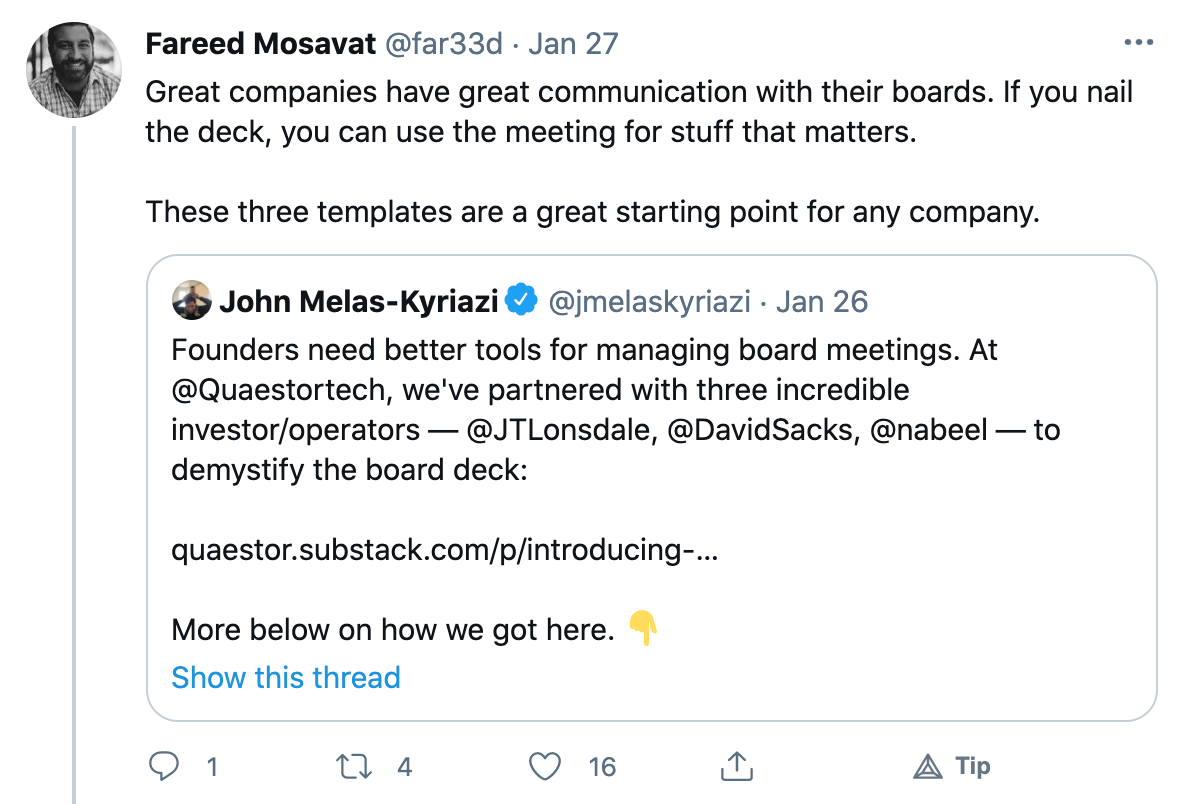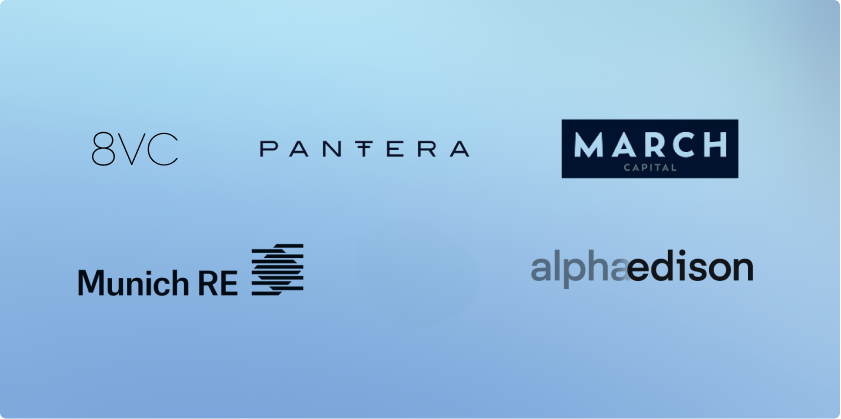We’ve collaborated with Hayley Barna, Partner at First Round Capital, to bring you a template for working sessions with your investor. Find a white board, download her template, and get to work clearing your company’s largest roadblock!
Sometimes a board deck just doesn’t cut it
Board meetings are a critical tool for founders to solve business problems, and we’re excited to help the founder community explore this important topic with tools and content at Quaestor. Over the past couple of months, we have shared a collection of three board deck templates from Joe Lonsdale, Nabeel Hyatt, and David Sacks in an effort to codify best practices for board meetings and bridge the knowledge gap between investors and founders. You can check them out here.
Despite the positive reaction to these templates, we’re well aware that there is no one-size-fits-all solution to investor collaboration. After we published these last three board deck templates, some of the top entrepreneurs and investors we know told us they swear by a different approach and often don’t use decks at all with their investors. We couldn’t help but learn more and go down the rabbit hole.
Today we are excited to introduce our exploration into board deck alternatives. First, let’s dive into why board decks might not be right for your company in every situation.
Board meetings are often referred to as “the most valuable meeting each quarter.” Every team member wants a seat at the table, and for investors, becoming a board member for the first time is a critical career milestone. This framing oftentimes results in a dog and pony show that doesn’t provide value to the executive team or the board members. Jeff Bonforte, CEO of Grindr and former CEO of Xobni perhaps put it best in an article for First Round Review:
“Board meetings are long, grueling, and hard to focus. It’s nearly impossible to capture your company’s story accurately when you’re obligated to only talk about certain things, i.e. how money’s getting spent. Too many boards are too big, and too many board members invite observers and general hangers on – all who want to chime in with something to sound smart.”
Additionally, board meetings merit different goals and outcomes depending on the current stage of your business. The traditional meticulous preparing of slides and walk through of all aspects of the business, from sales to marketing to metrics to operations, can often not be the right strategy for early stage companies. Similarly, a laser focus on urgent tactical items isn’t as relevant for later stage board meetings. As companies eventually progress to post-IPO, the board meetings change yet again, involving a greater focus on governance and far less control on the founder side.
Simply put, if what you really want is an intense discussion with your investors to solve a major problem, sometimes the traditional board meeting + deck doesn’t do the trick. It prevents you from sharing the same level of detail as you could through thoughtful prose and focused discussion, tends to spread the meeting thin across many topics and people, and it requires a level of design effort that may distract from more pressing priorities.
There’s another path — and Standard Metrics is here to help
We’re excited to explore alternatives, which we jokingly refer to as “anti-board deck” board decks, and share our learnings with the founder community. The natural question: if not board decks, then what?
As a first step, we’ve partnered with Hayley Barna — co-Founder of Birchbox and current Partner at First Round Capital, where she leads investments in seed stage consumer companies — to unveil the importance of board working sessions and why she views investors at the seed stage as “the kick in the ass when you need it most.”
Hayley believes in the power of tactical board working sessions at the earliest stages. The key benefit of these sessions is their ability to facilitate open, genuine conversation rather than posturing on both sides. Building a company is a team sport, and these sessions are in service to the entrepreneur and the problems they and their company are currently facing.
A few highlights of Hayley’s approach:
- This is a collaborative conversation to clear a roadblock, not a standing meeting
- Pre-load your investors with relevant context via an email beforehand
- Choose a single success metric for the working session up front
- Don’t “spin” any details – pulling punches will reduce the value of the conversation
If what you truly need is a “kick in the ass,” don’t spend hours preparing for an upcoming quarterly board meeting that won’t move the needle. Rather, collaborate immediately with your investors to clear roadblocks and maximize engagement with your brain trust.
We hope that what we shared today will continue empowering founders with the tools and insights they need to build the world-changing companies of tomorrow. Who would you want to hear from next? What other useful tools would you like us to build around investor relations and board management? Drop us a comment or feel free to reach out anytime with feedback. Check out the entire board deck template library here.
Automate your portfolio reporting
Find out how you can:
- Collect a higher volume of accurate data
- Analyze a robust, auditable data set
- Deliver insights that drive fund performance
